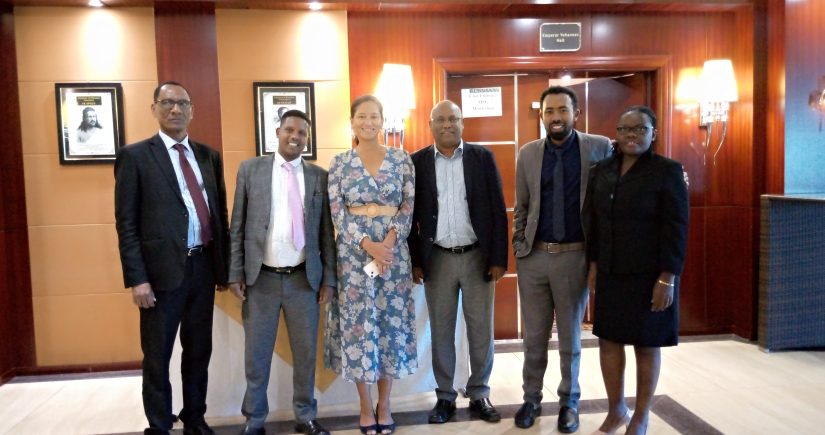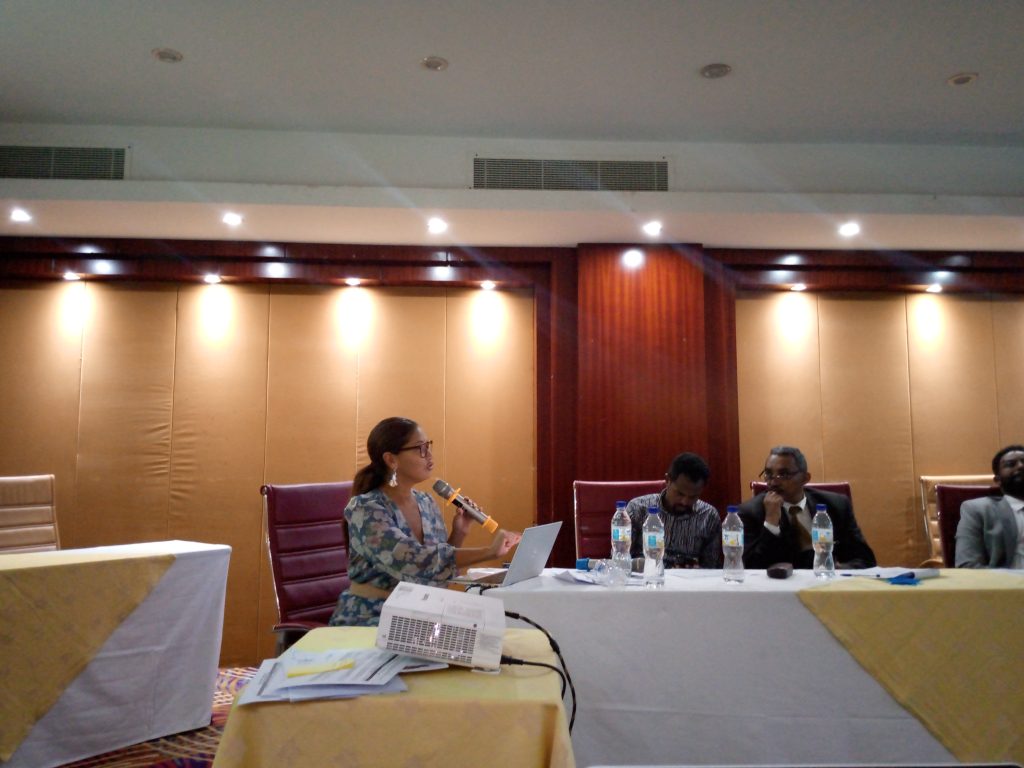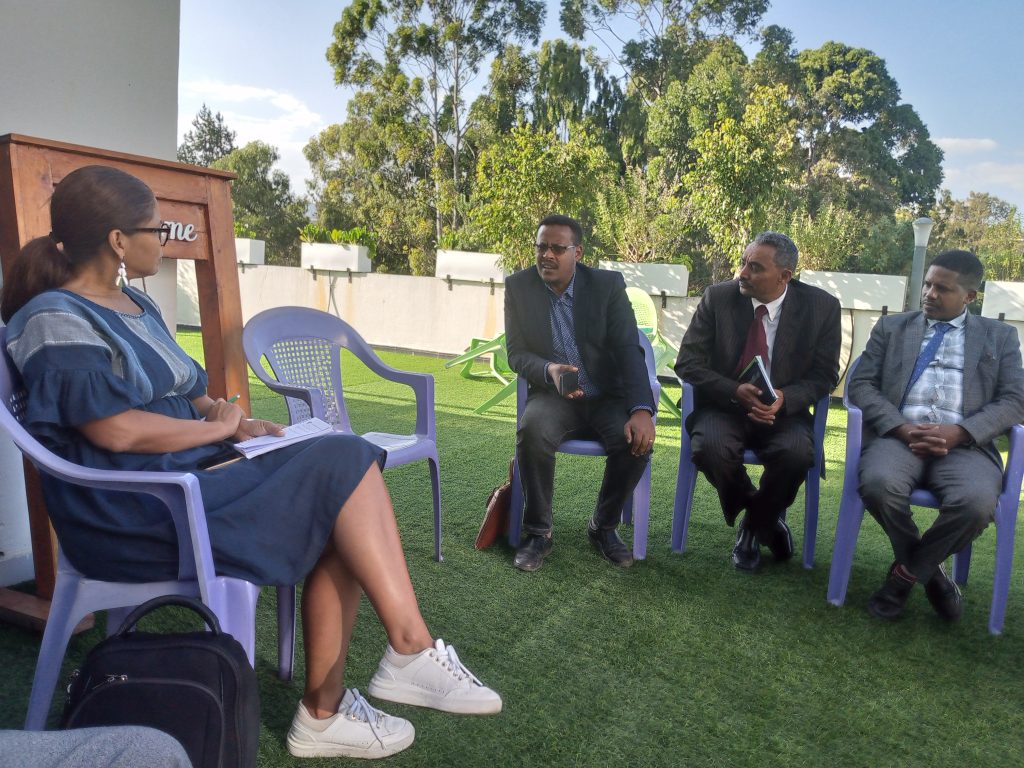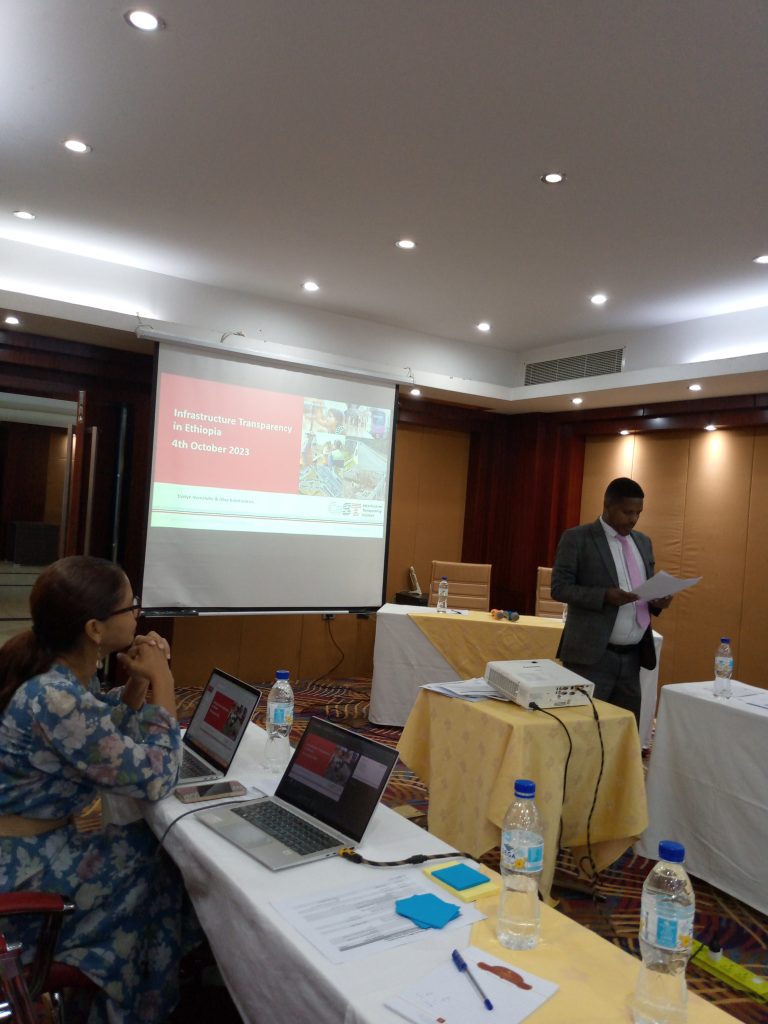by Olive Kabatwairwe
Last year saw CoST, the Infrastructure Transparency Initiative inaugurate two new high level Multi-Stakeholder Groups (MSGs). CoST Ethiopia democratically reconstituted a new MSG, and CoST Kaduna, Nigeria our member commissioned their new Multi-Stakeholder Group.
Multi-stakeholder working is one of the four features of CoST, which helps for government, private sector and Civil Society to build trust and discuss key concerns, observations and agree on areas of improvements to enhance public infrastructure. Both MSGs discussed these benefits.
Separate conversations with the two MSGs revealed the strength enshrined in bringing stakeholders together for a common agenda, and the value of working together to address sector needs.
As part of ensuring our teams at the national level are equipped with the right skills and understanding of the CoST features of Multi-Stakeholder Working, Disclosure, Assurance and Social Accountability, the CoST International Secretariat provides tailored trainings to our members, including to newly established or reconstituted MSGs. CoST Ethiopia and CoST Kaduna’s recently established new MSGs undertook training to further understand their roles, mandate and how to sail through the complex sector related issues in their quest for infrastructure transparency, accountability and citizen participation in the respective countries.
“Thank you for visiting Kaduna State, and for providing training for the Multi-Stakeholder Group on infrastructure transparency, especially the procurement process. I assure you of the State Government’s commitment to transparency and accountability in the infrastructure sector, using technological tools” Senator Uba Sani, Governor, Kaduna State.
MSGs operate as a steering committee for CoST members, working in close collaboration with the Host Organizations from government and/or civil society. They ensure that there is dialogue, mutual collaboration, ensure effective management and success of their respective CoST member programme. This includes helping CoST members to implement commitments made in the membership application within the first two years of their membership in CoST, after which an assessment is undertaken to measure performance as per the CoST Monitoring and Evaluation policy. The continuous training, mentorship and technical support of MSGs remains critical to support them with their function.
“We are committed to implement the CoST approach and are keen to work closely with the citizens through existing structures. Being part of CoST will take us further in the area of transparency and accountability, we are committed to opening our doors for the businesses and CSOs to access information on infrastructure projects. Implementing the CoST approach will help us put in place mechanisms for delivering better infrastructure projects for the citizens of Kaduna State, transparency in the procurement process will be enhanced and everyone will benefit from the sector through quality infrastructure”. Hon Mukhtar Ahmed Commissioner Planning and Budget Commission, Kaduna State Government.
The trainings help prepare the groundwork for the MSGs, sharing lessons from other CoST members and assuring the members of an existing body of knowledge at their disposal. Through the two trainings and agenda setting, a way forward was established. For Kaduna State, the MSG committed to working alongside the Office of the Governor and the host organization, the Planning and Budget Commission to
- develop a five year business plan to enhance infrastructure transparency
- integrate the Open Contracting for Infrastructure Data Standard (OC4IDS) within the existing procurement platform
- develop a user friendly interface/dashboard for sharing real time analytical information for stakeholders to influence decisions
- transfer and replicate knowledge within the other 35 states in Nigeria, develop guidelines for emergency procurement
- advocate for the passing of the Kaduna State Access to Information Bill to facilitate access to information among others
- Document lessons
CoST Ethiopia’s MSG committed to working with the Federal Procurement and Property Authority in Ethiopia and The Federal Ethics and anti-Corruption Commission through an existing tripartite agreement with various stakeholders to:
– strengthen the participation of the CSOs and the media
- use disclosed data to influence sector reforms
- enhance governance of the programme
- develop a results framework
- strengthen fundraising and secure the much needed resources to implement the CoST features in Ethiopia and influence the adoption of the CoST standard in the ongoing procurement reforms- the electronic procurement portal and the reviews of the procurement law.
“Our plan is to expand CoST to across all the Ethiopian regions starting with awareness raising, holding lobby meetings with stakeholders, assure more projects to increase transparency across the country. Our target is to raise up to half a million USD by December 2024. Our fundraising drive will also be scaled up to the businesses/private sector to provide as part of the corporal social responsibility packages support to CoST” Wubshet Jekale (PhD, Eng.) Chairperson of the CoST Ethiopia MSG.
The CoST approach provides a blueprint for increasing transparency, enhancing performance in the delivery of infrastructure projects, that is contextualized to fit each country/state context. From the two trainings, our teams gathered knowledge and skills to deliver strong CoST programmes, influence reforms at various levels, secure knowledge and jointly work together to promote transparency in the sector across the respective member country/state.
We congratulate both members upon constituting their governance platforms that will facilitate conversations on how the infrastructure sector can be improved.



